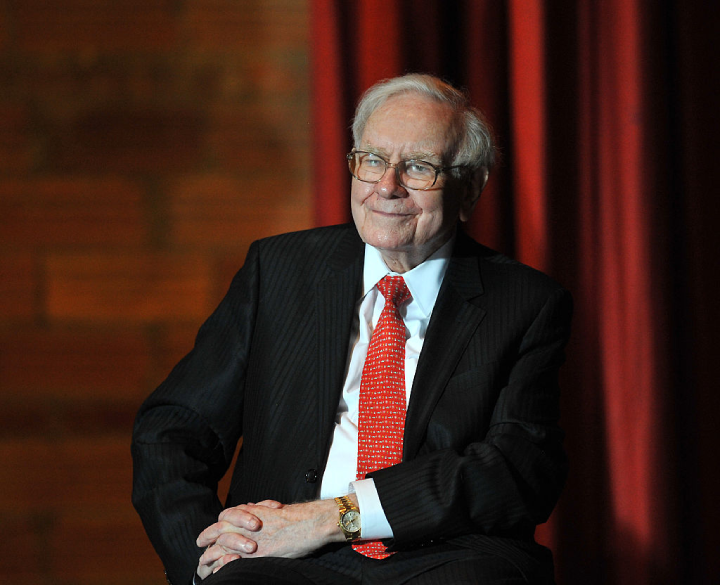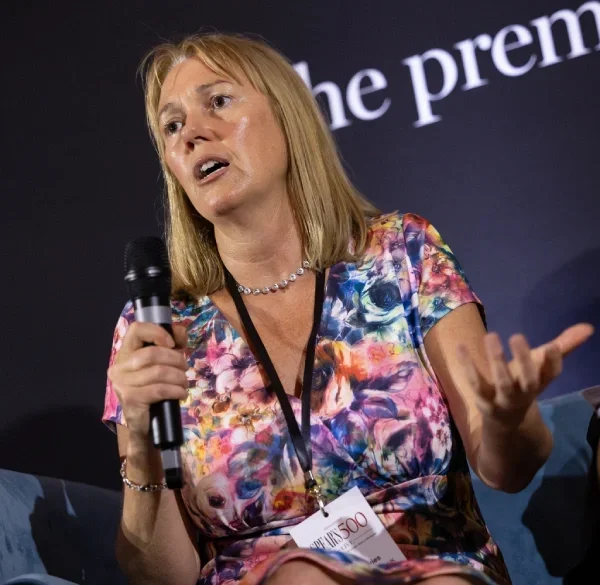
At some point in their journey, every entrepreneur considers an exit.
This might be because you’ve been developing a business for several years, decades or even generations, and the time is right to step back. For a whole host of possible reasons, a sale may be preferable to staying on, or navigating a difficult succession planning process.
The question – of whether to sell or not – is one that gets more complicated for family businesses, when more people and more relationships are involved.
As the four seasons of Roy family infighting in Succession can attest to, finding a new leader within a brood to steer a ship is a highly uncertain process. In real life, too, wealthy families often become the subject of speculation over their business leadership plans.

Photos showing Elizabeth Murdoch attending the Super Bowl in February with her father and Elon Musk reignited speculation over which of Rupert Murdoch’s children might eventually gain control of his business affairs. Lachlan Murdoch remains the co-chair of News Corp and is CEO of Fox.
Likewise, Bernard Arnault, the world’s richest man, has spent many years preparing his five children to step up to take control of LVMH, his luxury and fashion conglomerate.
Other families have exited their businesses entirely. The acquisition of the Hilton hotel business by Blackstone for $26 billion in 2007 saw a significant payday for the Hilton family, with the late Barron Hilton passing on a $1.2 billion windfall from the sale to the family’s philanthropic charity (along with almost all of his wider $2.3 billon estate).
More recently, it was announced in July that the Murray family had sold its international metals business, Murray Energy Asia, while serial children’s toy entrepreneur James Sinclair recently snapped up Party Pieces, the business started by Carole and Michael Middleton, parents of Kate, the Princess of Wales, in the 1980s.
Should I sell my business?
For a business-owning family considering an exit, the first step is to have group discussions ‘to set out the vision and the mission for [their] family’, and to consider what role, if any, the business plays in this outlook. That’s according to Helena Robertsson, EY’s Global Family Enterprise and Family Office Leader, and an adviser to some of the most high-profile family businesses based in the Nordic countries.
These conversations may involve family members weighing up whether they ‘should not be in a management position, maybe [they] should then take more of a passive role and be non-exec owners instead,’ Robertsson says. But, she adds, at some point the conversation may veer into discussing whether the family would ‘actually be better off with some sort of different ownership or stewardship.’
Robertsson often recommends HNWs ‘ask other families that have experienced the same journey’ for informal advice, to understand the process before embarking on a sale. ‘In my experience, this is also a very emotional journey for many entrepreneurs and family businesses,’ she says.
And they also have to take into consideration what this transaction will do with their family identity. ‘There are a lot of family businesses where the business brand and the family brand are the same thing.’ Successful sales, the EY adviser adds, most often happen when a family has allowed the process to take enough time.
[See also: The Best Family Business Advisers for HNWs in 2023]
When is the best time to sell a business?
An environment of high interest rates might make it difficult for would-be business buyers who are using debt finance for their transactions, while wider uncertainty has played a role in depressing transactions volumes. Global dealmaking activity is now around one-third lower than in the first half of 2019.
‘The macroeconomic conditions and tight financing markets have created a deal environment in which processes are taking longer, with more uncertain outcomes,’ reads PwC’s mid-year update on global M&A industry trends.
But looking beyond these figures, there might still be signs for optimism for family businesses owners looking to sell up and HNWs looking to buy.
‘The M&A market is more resilient than the headline numbers might suggest,’ Brian Levy, PwC’s global deals industries leader, says in the report. ‘It’s a buyer’s market out there now, especially for cash-rich corporate acquirers and middle-market deals.’
Likewise, if cash-rich investors are able to look beyond tough times, they may find themselves some interesting deals. If you've got the firepower, to be able to buy right when everybody else is really, really concerned, then there are massive opportunities there,’ high-profile investor and entrepreneur Ryan Howsam tells me. ‘Warren Buffett is an expert at that.’
The founder and chairman of Staysure, one of the UK's leading travel insurance firms, Howsam says he was able to acquire another travel business just as the tourism industry was hunkering down during the pandemic. It was a good deal for both sides, he says, ‘right in the middle of trouble.’
There will always be ‘all sorts of major risks that are out there’, Howsam adds. Aside from recessionary fears, HNWs would do well to consider what impact sweeping global trends like technological disruption will have on their wider industry.
‘Analysing a business, to understand what protection it has got against the risks that are out there, is really important,’ he says.
How to value your company
Once you’ve decided the time is right to sell up, expert advisers assisting with the sale are likely to gather up as much information about the business's operations as possible. An ‘information memorandum’ about the business can then be prepared for potential buyers.
‘We will identify what we call the key selling messages about a business — the key things that will make a buyer stand up and think, “I’ve got to buy this”,’ says Corbett Keeling CEO Jim Keeling, a seasoned M&A adviser to family businesses with 30 years of experience.
Keeling first considers the ‘standalone momentum’ of a business - that is, how much it would be worth if it ‘just keeps going on on its own’. But advisers will also be looking to discover its ‘strategic value to a third party’ if sold, he adds.
One key metric to assess value will be considering a business's revenue streams and operating expenses. ‘The first obvious thing is the EBITDA, and the ratio to that sector,’ Howsam says. Understanding a business's 'earnings before interest, taxes, depreciation and amortisation' can give potential buyers and investors a sense of profitability and its ability to generate cash flows - without factoring in debts or other financing needs. Revenues can also be used to calculate a business's run rate, a projection of future growth potential.
When considering buying a business, Howsam also looks at costs including marketing and head counts, ‘to understand what the norms are,' he adds. This allows him to work out future avenues for growth, or how to increase scale or profitability. ‘You might think that the people costs are less than what they could be... If we're talking about a more early-stage business, you're going to have to put in significant costs to manoeuvre it forward,' he says.
It's also helpful to consider the big picture. This might include what value buying a business has to your wider portfolio. You might be gaining a new customer base, or gaining network effects by having access to new, innovative technologies. Conversely, you might be able to share expertise on tax planning and administration to reduce the operating costs of the business you are taking on.
‘The things that I'm buying might not, to the naked eye, look like they make sense. But I've got a master plan, where things sit together behind the scenes,’ Howsam says.

‘We’re looking for special factors within the business, growth factors… we call them “nuggets”, and it might be something that the owner has half-started,’ says Keeling, who advises on the sale of businesses valued between tens and hundreds of millions. ‘What we’re trying to do is to demonstrate the future earnings capability of that nugget, or the strategic opportunity to the buyer.’
Finding the right owner
There are generally two types of buyers you could sell to — trade buyers and financial buyers.
Trade buyers might be your competitors, or businesses of a similar nature in a different geography or adjacent industry. Meanwhile, financial buyers might include any investor with a range of assets — such as a family office, another UHNW or a private equity firm.
Often, private equity firms are looking for businesses where extra value can be added over a five to seven-year time period, before a further sale.
When it comes to trade buyers, ‘the strategic value might be that a third party really wants this business's operations in the UK or in Europe, because they're coming from the other side of the Atlantic,’ Keeling says.
Keeling adds that his advisory practice has around 35 ‘sector specialists’ who understand ‘what makes a business tick’. He also says the team have an in-depth knowledge of different industry sectors, allowing them to easily pinpoint which trade buyers might be appropriate for a sale. On the global level, he partners with a range of ‘lookalike’ firms and advisers who are M&A specialists in different countries.

A good sale process might include up to 10 offers, of which around two or three might be ‘looking like they could knock the lights out’, Keeling says. ‘We're not just about getting the maximum cash, because that's actually not what our clients want. They also want to get the right sort of buyer…And they are also looking for certainty in the transaction.’
Vendors can also undertake due diligence processes - information can then be presented to a buyer when offer discussions are underway, which can help to speed up the negotiations process.
The buyer's side will be doing their own checks and there will be financial, tax, and legal elements to consider, which will be more complex if there are multi-jurisdictional operations. ‘It depends of course on the business, and how spread it is globally,’ says Robertsson. ‘It takes easily a year or more, to allow the process to take time, maybe 12 or 24 months.’
Options for the future
When an offer price has been agreed, an entrepreneur will likely benefit from a significant windfall — of cash proceeds and free time.
‘If you sell your family business, and various branches of the family end up with a pool of cash, then the family can take different directions, depending on preferences,’ Robertsson says. ‘One might want to embark on a new entrepreneurial journey, whereas someone else might just want to be passive and engage with other things, or go into charity or impact investing.’
Julia Davies, who co-founded Osprey Europe, told Spear's earlier this year that since her exit from the business in 2018, she now spends the majority of her time on impact investing, philanthropic projects and environmental campaigning.

Robertsson's clients, she says, might also want to retain some control of a business. This could be done through an IPO, where family members retain voting powers through different share classes. ‘They don't necessarily have to sell the company to get liquidity. Or, if a branch of the family wants out — that’s also something you can use an IPO for, for succession and planning purposes,’ she says.
Keeling adds that if an owner can work out what they aim to achieve with a business sale in advance, ‘then we can normally shape the sale to suit the particular person.’
This can include designing a transaction so a HNW can still work within a business, ‘but at a slower pace’. Meanwhile, others might want to retain a stake for succession planning purposes, allowing them to ‘bank £20 million in the meantime’. Or, it can simply be designed so someone can ‘get out and never be seen again’, he says.
At the end of last year, Julie Deane, who founded the Cambridge Satchel Company in 2008 with just £600, sold the business to Chargeurs, the French textiles group. At the time, Deane made a full exit and a new CEO was appointed.
‘All of it is achievable. It really depends on what the owner wants,’ Keeling adds.






